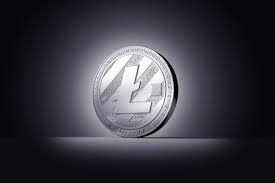
Bitcoin current prices peaked at an all-time high of just over $11,800 Sunday in one of the most dramatic value surges of any asset in living memory.
Today’s hottest digital currency was worth just $12 in 2013, and has at times been described as an internet fad favored by nefarious wheelers and dealers trying to circumvent taxes or the law.
Some are confused by it, bitcoin and other cryptocurrencies have become impossible to ignore. Chicago’s two most prominent exchanges, the Chicago Mercantile Exchange and the Chicago Board Options Exchange have just announced plans to launch bitcoin futures contracts, and now the U.S. Commodity Futures Trading Commission has given them the green light. Nasdaq may be heading into the bitcoin futures race as soon as second quarter next year, Bloomberg reports. Bitcoin advocates are pushing the exchanges can assist to stabilize the highly volatile currency.
Cryptocurrencies can provide a digital alternative to government-issued fiat currencies plus they can also be used in online marketplaces to buy everything from a set of cupcakes to plane tickets to cyber pets. While bitcoin will likely continue to be inconveniently slow (transactions can take upwards of 10 minutes) and risky (buyers unfortunately cannot set a price until the day of the transaction, leading to very wide fluctuations), some say it’s already safer than certain foreign currencies, for example Venezuela’s bolívar.
That’s because Bitcoin is greatly protected from fraud and counterfeit by technology called blockchain — an encrypted ledger system which records transactions accepted by consensus of asset managers. The Atlantic‘s Derek Thompson described bitcoin as a “frankly terrible currency built on top of a potential transformative technology,” one that could have the power to change our conventional understanding of money.
Others are much more concerned by potential financial risks than the possible benefits. Vanguard Group Inc. founder and investment pioneer Jack Bogle reportedly has advised avoiding bitcoin and “like the plague,” joining many other investors in similar criticism. “There is nothing to support Bitcoin except the hope that you will sell it to someone for more than you paid for it,” Bogle said, reported Bloomberg.

Ethereum (ETH)
Similar to bitcoin, ether “tokens” are underwritten by a blockchain network, in this case named Ethereum. Pioneered by a former Bitcoin Monthly writer, Ethereum was launched in 2014 with an goal to pursue further decentralization. Where it differs from bitcoin primarily in application: Ethereum is an open, and decentralized software platform in which ether is used to pay for transaction fees and services. As of Monday, it was trading at $472 with a market cap of about $45.5 billion.

Litecoin (LTC)
Litecoin has been described as the silver to bitcoin’s gold. Also it is a slightly cheaper, more readily available option. Litecoin was first launched in 2011, as a faster alternative to bitcoin, processing one bloc every 2.5 minutes as opposed to every 10, according to some estimates. Instead of a narrow focus on hefty transactions, Litecoin targets merchants who need a much larger volume of small transactions to be processed quickly. As of Monday, it was trading at $101 with a market cap of near $5.5 billion.